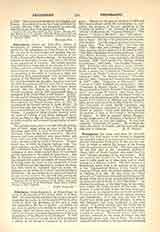

Frechette, LOUIS-HONORS, b. at Notre-Dame de Levis, P. Q., Canada, November 16, 1839; d. May 30, 1908. He attended the schools of his native town, and completed his studies at the Seminary of Nicolet, after which he chose the profession of law, and in 1864 was admitted to the Dar at Quebec. As clients did not come as quickly as he desired he decided to go to Chicago, where for seven years he worked as a journalist, and became corresponding secretary of the land department of the Illinois Central Railroad. In 1871 Frechette returned to Canada, and in 1874 was elected a deputy in the House of Commons by the Liberal party. Defeated in the general elections of 1878 and 1882, he abandoned public life and returned to journalism, the products of his pen appearing in the “Journal de Quebec”, the “Journal de Levis”, the “Patrie” of Montreal, the “Opinion Publique”, “The Forum”, “Harper’s Monthly”, and “The Arena”. Meanwhile his poetry won him fame abroad and admiration at home. The list of his poetical works is somewhat lengthy. The following are given in their chronological order: “Mes Loisirs”, 1863; “La Voix d’un Exile”, 1866—first part published at Chicago. Another complete edition appeared at Montreal in 1874. “Pele-Mele; Fantaisies et souvenirs poetiques”, 1877; “Les Fleurs Boreales, and Les Oiseaux de Neige, Poesies Canadiennes”, a work crowned by the French Academy, 1879; “La Legende d’un Peuple—Poesies Canadiennes”, 1887-1890; “Les Feuilles Volantes”, 1891. Frechette wrote also much in prose, notably: “Felix Poutre” (an historical drama), 1871; “Lettres a Basile a propos des Causeries du Dimanche”, 1872; “Le retour de l’Exile” (a drama in five acts and eight tableaux), 1880; “Le drapeau fantome” (historical episode), 1884; “Episode de 1′ insurrection Canadienne de 1837”, 1885; “Originaux et Detraques”, 1892; “Lettres a l’abbe Baillarge sur l’education”, 1893; “Christmas in French Canada” (in English), 1900. He translated into French, Howell’s “Chance Acquaintance” and George W. Cable’s “Old Creole Days”. Frechette became a member of the Royal Society of Canada at its foundation in 1882; he was named Companion of the Order of St. Michael and St. George in 1897, on the occasion of the Jubilee of Queen Victoria. The University of Laval, McGill University, and Queen’s University conferred on him the degree of Doctor of Letters. From 1889 Frechette occupied the position of clerk of the Council in the legislature of Quebec. In 1876 he married Emma Beaudry, second daughter of J.—B. Beaudry, a banker of Montreal, by whom he had two children. He has been called the “Lamartine of Canada“. He certainly elevated the poetry of Canada, and his work will rank with that of Cremazie.
N. E. DIONNE

